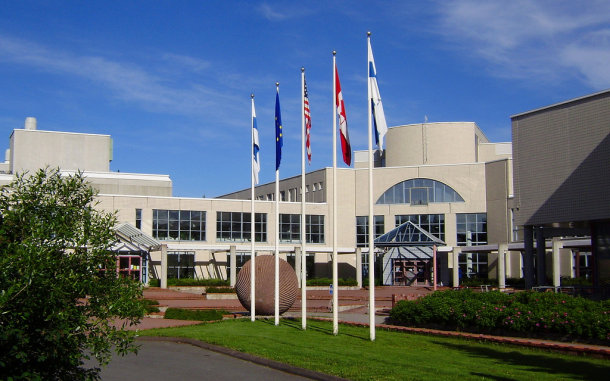The study Read more [...]
Science Communication
Course Category: Master and Master of Arts
-
Focus of Study
Master’s Degree Programme in Science Communication (TIEMA) is designed to meet this challenge by providing its students with an opportunity to become experts in science communication and popularisation. The TIEMA Degree aims to facilitate students’ practical communication skills as well as their understanding of scientific knowledge.
By learning to understand the nature of the media and the scientific community as well as the language inherent in them, the students of TIEMA will gain the ability to work as mediators between science and the media. The students will learn to think analytically, use various appliances, retrieve, manage and produce information effectively, and work independently on projects.
Course Description
Structure
The programme comprises the following study units:
1.Communication Research Studies (25 ECTS)
- Introduction to Communication Studies
- Introduction to Science Communication
- Changing Media Culture
- Media Law and Ethics in the Media
- Communication research
2. Science Studies (20 ECTS)
- Publicity and Ethics of Science
- History and Politics of Science
- Sociology and Philosophy of Science
- Information Skills and Scientific Communication
3. Practical Media Skills (40 ECTS)
- Science Education and Science Visualisation
- Communication and PR Workshop
- Journalism Workshop
- Television Workshop
- Radio Workshop
- Web Publishing
- Publication Design
4. Pro Gradu Thesis and Seminar (35 ECTS)
5. Optional studies
- PR-Communication
- Practices in Communications
- Work Practice
- Business Plan of a Communications Entrepreneur
Graduate Profiles:- Journalist
- Communications Manager
- PR Officer
- Researcher
Learning OutcomesThe graduate will be able to communicate using the principles of popular science communication. He/she will be able to compare and assess the different communication practices inherent in science and journalism, and produce accessible popular texts on the basis of scientific research results and scientific language.
The student will be able to critically evaluate and describe various practices and key issues in modern and more traditional science communication. He/she will be able to use various media and apply the principles of scientific communication in practical communication situations. The student will also be able to address the popularization of science in relation to the history of science, philosophy of science, sociology of science, science education, politics of science as well as the ethics of science and communication. The student will be able to seek information from various sources and databases of scientific information. He/she will be able to apply various methods in communication research and the study of science.
The student will also be able to formulate and define a relevant research problem in science communication, carry out research on his/her topic and present it in the form of a written pro gradu thesis. The student will be able to draft and present scientific seminar reports and participate as an active member in seminars and workshops. He/she will also be able to describe and evaluate the professions and work opportunities in the field of science communication.
Unique in Finland, the programme is organised and run jointly by the subjects of History of Science and Ideas, and Information Studies at the Faculty of Humanities.

